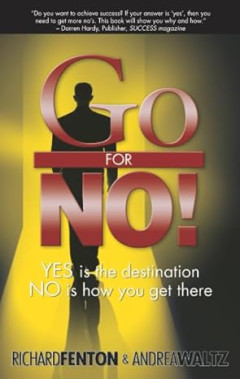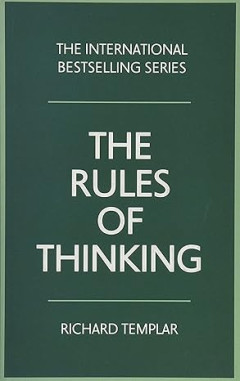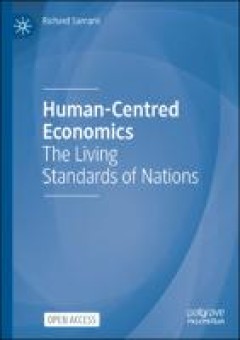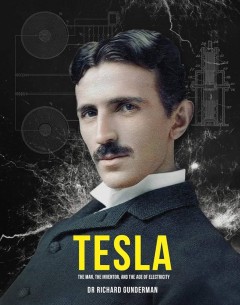Ditapis dengan

E-book Go for No! Yes is the Destination, No is How You Get There
What if the word "no" didn't slow you down, depress, or discourage you? Sticks and Stones May Break My Bones but “NO” Can Never Hurt Me! That’s the lesson twenty-eight year old copier salesman Eric Bratton is about to learn. And he’s going to learn it from the most unlikely of mentors - himself! Imagine going to bed one night, then to awaken the next morning in a strange house wi…
- Edisi
- -
- ISBN/ISSN
- 9780966398137
- Deskripsi Fisik
- 80 halaman
- Judul Seri
- -
- No. Panggil
- 158.1 FEN g

E-book Rules of Thinking, The: A Personal Code to Think Yourself Smarter, Wis…
We all envy the natural thinkers of this world. They have the best ideas, make the smartest decisions, are open minded and never indecisive. Is there something they know that the rest of us don't? Is it something we can all learn? The answer is a resounding yes. They know The Rules of Thinking. These Rules are the guiding principles that show you how to make wiser decisions, stop procrast…
- Edisi
- -
- ISBN/ISSN
- 9781292263809
- Deskripsi Fisik
- -
- Judul Seri
- -
- No. Panggil
- 100 TEM r
E-book Eyewitness Travel: Sicily
- Edisi
- -
- ISBN/ISSN
- 9781465459954
- Deskripsi Fisik
- 254 halaman, ilus.
- Judul Seri
- -
- No. Panggil
- 910.2 FRA e
- Edisi
- -
- ISBN/ISSN
- 9781465459954
- Deskripsi Fisik
- 254 halaman, ilus.
- Judul Seri
- -
- No. Panggil
- 910.2 FRA e
E-book Psychology : The Science of Mind and Behaviour
These theoretical differences partly reflect the complexity of the subject matter. Perhaps more importantly, there’s a very real sense in which we are all ‘Psychologists’ in our everyday lives: Psychologists as scientists/researchers use fundamental cognitive processes in order to investigate those same processes (such as perception and memory); hence, Psychologists (with an upper-case �…
- Edisi
- -
- ISBN/ISSN
- -
- Deskripsi Fisik
- 25 hlm
- Judul Seri
- -
- No. Panggil
- 150 GRO p
E-book Gianni Versace
Versace posed and provoked the basic issues of fashion's role. Versace tantalized us with vulgarity. In this, he adapted a strategy from the fine arts in the twentieth century, including elements of the banal and coarse in his sensibility. The collage, smarmy joke, offensive imagery, and ready-made object pertinent in the juggernaut of modern art are evidence of an attempt to be vulgar. Versace…
- Edisi
- -
- ISBN/ISSN
- -
- Deskripsi Fisik
- 193 hlm
- Judul Seri
- -
- No. Panggil
- 746.92 MAR g
E-book Essentials for Students
Plastic surgery had its beginning nearly 3000 years ago, when Sushruta, an Indian surgeon, reconstructed the nose by transferring a flap of cheek and then forehead skin. It is a modern field, stimulated by the challenging reconstructive problems of the unfortunate victims of the World Wars. The advent of the operating microscope has thrust the plastic surgeon of today into the forefront of adva…
- Edisi
- -
- ISBN/ISSN
- -
- Deskripsi Fisik
- 225 hlm
- Judul Seri
- -
- No. Panggil
- 617.95 AGA e
E-book A History of South Africa
Modern Western culture is inordinately present-minded. Politicians are ignorant of the past. School curricula foreshorten the historical record by focusing on recent events. People lack a sense of their location in time and fail to perceive that contemporary society is constrained by its cultural as well as its biological inheritance. Many historians of the white South African establishment sta…
- Edisi
- 3rd ed.
- ISBN/ISSN
- 0300087764
- Deskripsi Fisik
- 418 hlm
- Judul Seri
- -
- No. Panggil
- 968 THO a
E-book Christian Dior : The Metropolitan Museum of Art
At the waning of this century, we take the occasion of the fiftieth anniversary of Christian Dior's New Look to review the magnificent work he created in a little more than one decade at the century's heart. Few occasions in fashion history are as precise, and few are as worthy of consideration and celebration. It is difficult to analyze Dior today: the intervening four decades have irrevocabl…
- Edisi
- -
- ISBN/ISSN
- 0810965062
- Deskripsi Fisik
- 209 hlm
- Judul Seri
- -
- No. Panggil
- 746.92 MAR c

E-Book Human-Centred Economics: The Living Standards of Nations
This open access book examines the chronic underperformance of economies with respect to inclusion, sustainability and resilience. It finds that the standard liberal economic growth and development model has evolved over the past century in a fundamentally unbalanced manner that underemphasizes the crucial role of institutions – legal norms, policy incentives and public administrative capacit…
- Edisi
- -
- ISBN/ISSN
- 9783031374357
- Deskripsi Fisik
- 380 halaman
- Judul Seri
- -
- No. Panggil
- 331 SAM h

Tesla: The Man, the Inventor and the Age of Electricity (Great Thinkers)
Known as the father of modern electricity, Nikola Tesla’s work transformed the world. Devoted to discovery, the scientist and engineer registered more than 700 patents in his lifetime, from X-ray to radar, to the Tesla Coil, radio, and remote control. This illustrated biography follows the development of Tesla’s key theories and inventions, shining a light on an eccentric man who, ultimatel…
- Edisi
- -
- ISBN/ISSN
- 9780233005768
- Deskripsi Fisik
- 160 halaman, 24,5 cm X 19 cm, ilust
- Judul Seri
- -
- No. Panggil
- 920.71 GUN t
 Karya Umum
Karya Umum  Filsafat
Filsafat  Agama
Agama  Ilmu-ilmu Sosial
Ilmu-ilmu Sosial  Bahasa
Bahasa  Ilmu-ilmu Murni
Ilmu-ilmu Murni  Ilmu-ilmu Terapan
Ilmu-ilmu Terapan  Kesenian, Hiburan, dan Olahraga
Kesenian, Hiburan, dan Olahraga  Kesusastraan
Kesusastraan  Geografi dan Sejarah
Geografi dan Sejarah